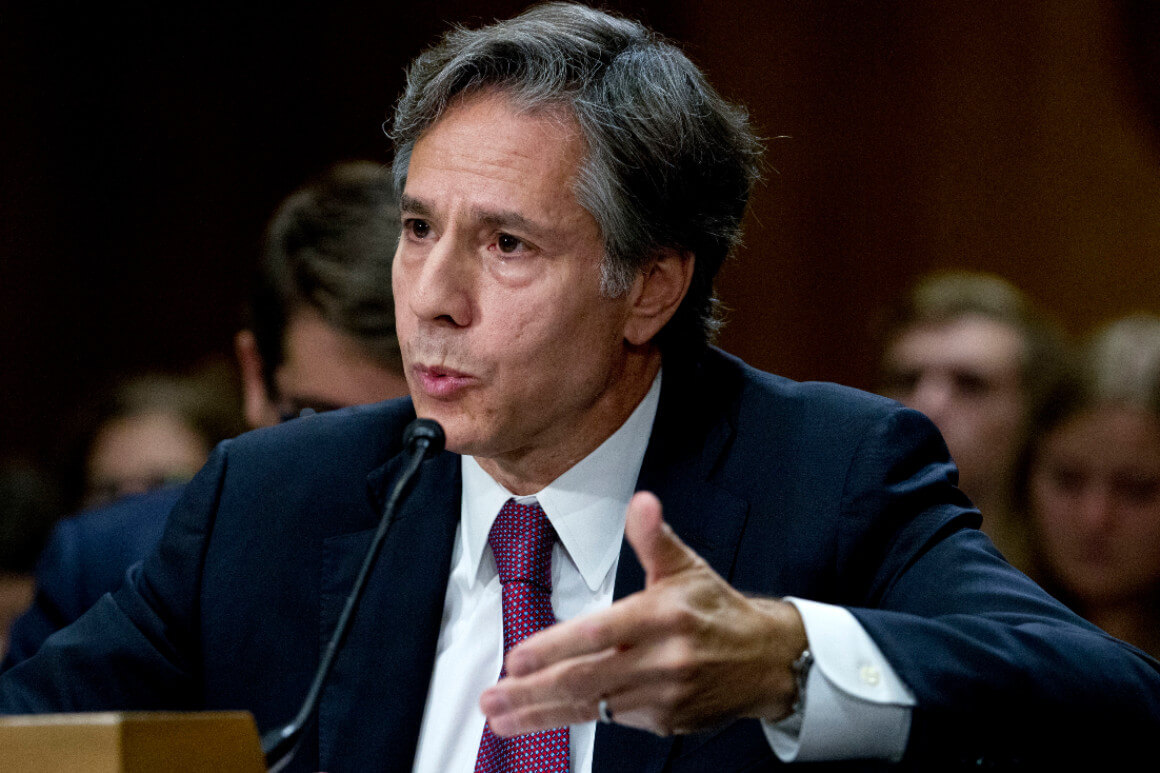On Tuesday, incoming American President Joe Biden’s pick for Secretary of State, Antony Blinken, said that the new administration intends on reviewing the United States’ (US) engagement with North Korea and would look at ways to increase pressure on the country to renegotiate its nuclear weapons programme. Blinken also added that the US may consider providing humanitarian aid to Pyongyang if necessary. “We do want to make sure that in anything we do, we have an eye on the humanitarian side of the equation, not just on the security side of the equation,” he said during his Senate confirmation hearing.
Meanwhile, US ally and North Korea’s rival, South Korea, has requested incoming President Joe Biden to advance talks with North Korea and further build upon the progress made by outgoing President Donald Trump. “The start of the Biden administration provides a new opportunity to start over talks between North Korea and the United States and also between South and North Korea,” said South Korean President Moon Jae-in a few days ago. Trump met with Kim several times over the course of his presidency but was unable to effectively get the country to denuclearise.
In September, in an attempt to curb North Korea’s programme, the US Treasury Department and Commerce Department jointly issued an advisory titled “North Korea Ballistic Missile Procurement Advisory”. This advisory threatened United Nations (UN) and US sanctions against those aiding North Korea’s procurement of equipment and materials for its nuclear and missile development programs, even inadvertently. Seoul’s statement is indicative of its hope that Washington will continue to apply similar pressure on its neighbour.
Biden, however, has accused Trump of pursuing soft diplomacy through summits, rather than implementing “meaningful curbs” on North Korea’s nuclear ambitions. Trump’s lack of action when North Korea blew-up an inter-Korean communications facility last June is a testimony to his administration having blindsided North Korea’s increasing hostility. Biden, on the other hand, has been known to take a pro-South Korea stance in his speeches and interviews, which has angered the North. In fact, in the final debate before the election, Biden even went to the extent of calling Kim Jong Un a “thug” but added that he would meet with the leader if the communist regime agreed to denuclearise. Against this backdrop, Blinken’s statements are reflective of the Biden administration wanting to make North Korea more accountable for its actions.
North Korea’s nuclear programme has been under global scrutiny for years now and has consequently invited sanctions from many countries. However, this has not stopped the country from actively pursuing its nuclear goals. Back in 2017, North Korea conducted its sixth nuclear test. In the same year, it launched an intercontinental ballistic missile (ICBM), following which the Trump administration warned Pyongyang that even the threat to use such a weapon against it and its allies “will be met with [a] massive military response”. However, in 2018, Washington initiated talks with Pyongyang, and, in the spirit of denuclearization negotiations, North Korean Supreme Leader Kim Jong-un suspended nuclear and long-range missile testing.
This historic progress was undone in February 2019, when, in Vietnam, during the second round of talks, the deal collapsed after the two sides could not find a compromise on sanctions relief and the scope of denuclearisation. Instead, Kim vowed in his 2020 New Year’s message to introduce a “new strategic weapon” in the near future. More recently, North Korea was reported to have conducted a large-scale military parade. Moreover, earlier this month, Kim said that the US was North Korea’s “principal enemy” and further promised to expand the country’s nuclear and ballistic missiles programme.
New Secretary of State Blinken Says US Will Consider Aid for North Korea Under Biden
Incoming Secretary of State, Antony Blinken, has said that the new administration will review sending humanitarian aid for North Korea after talks with the country over its nuclear programme.
January 21, 2021

SOURCE: AP
